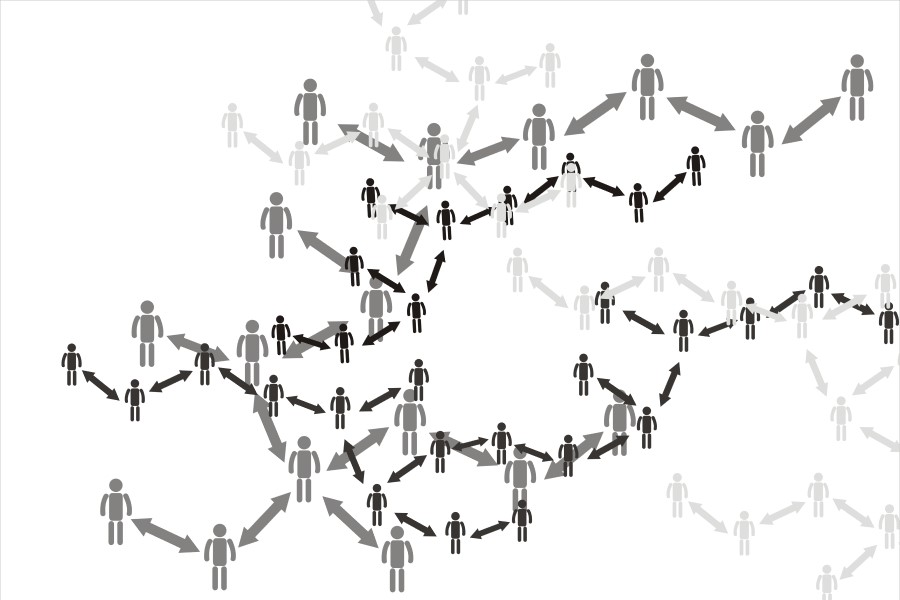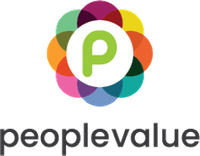The benefits of peer-to-peer recognition

That’s why peer-to-peer recognition is so important. An essential employee engagement tool, peer-to-peer recognition empowers employees to say “thank you” to their colleagues and highlight the everyday efforts and achievements of individuals as and when they happen.
What is peer-to-peer recognition?
To describe it very simply, peer-to-peer recognition is when colleagues express their gratitude of each other. Whether it’s for going the extra mile, helping a colleague, hitting a target or something else, employees simply saying “thank you” and “well done” to each other is peer-to-peer recognition.
Some businesses simply encourage their team to give each other kudos, while others opt for a more formal approach by introducing a peer-to-peer recognition programme to create a culture of appreciation. Peer-to-peer recognition programmes give employees a platform through which they can publicly share their positive feedback and gratitude with each other.
The benefits
Peer-to-peer recognition has its own unique benefits which we, as a reward and recognition provider, see first-hand in businesses of different sizes and from different sectors. So, if you’re wondering whether it’s time to implement a peer-to-peer recognition scheme, here are five ways it could benefit your business.
1. Encourages positive behaviour
Like all reward and recognition programmes, peer-to-peer recognition champions and therefore encourages positive behaviour. In fact, it’s often been said that getting recognised by a colleague is just as, if not more, motivating than getting recognised by a manager or member of the leadership team.
On top of that, peer-to-peer recognition tends to be public in the sense that every instance of recognition is made visible to everyone in the business. This means that when an employee recognises a colleague, not only does it show the individual being recognised that the behaviour they displayed is positive, but it also shows other employees what kind of behaviour they should aspire to in order to be recognised as well.
2. Reinforces company values
Many businesses encourage a specific set of behaviours by aligning their peer-to-peer recognition scheme to their company values. This means that when an employee recognises a colleague, they select a value that best reflects the reason for their recognition. Doing this not only provides a framework for your employees to use when they recognise a colleague, it also helps to reinforce your business’ values which should guide the way employees conduct themselves at work.
3. Boosts work relationships
Because peer-to-peer recognition encourages employees to regularly express their gratitude of each other, it gives them the opportunity to build and strengthen their relationships at work. Whether they work closely with someone or not, employees can say “thank you” to a colleague and show their genuine appreciation of their efforts. These public positive exchanges foster teamwork, collaboration and camaraderie – a perfect mix that’ll strengthen your business’ sense of community.
Read more on how recognition can positively impact employees’ work relationships.
4. Supports employee wellbeing
To put it simply, peer-to-peer recognition gives people that feel-good factor. Receiving a personal “thank you” message from a colleague can boost individual’s confidence, improve their self-esteem and, quite simply, make them happy. On top of that, people feel great when they send recognition to colleagues too. As a result, peer-to-peer recognition can help your team feel happy, confident and valued, and in doing so supports their wellbeing.
5. Showcases everyday efforts and achievements, no matter how small
One benefit of peer-to-peer recognition that’s not talked about enough is that it helps to showcase the everyday efforts and achievements of employees from all areas and levels in a business. Other reward and recognition programmes you have in place won’t highlight the day-to-day moments that contribute to your business’ success, but thanks to peer-to-peer recognition being in the hands of your people, they decide what actions are in the spotlight no matter how big or small. Employees can say “thank you” to individuals in the moment which is often when it matters most.
As you can see, peer-to-peer recognition can benefit your business in a number of ways. However, it’s important to remember that it’s simply not enough to implement a tool or system, you need to get your employees on board so that the recognition they send is timely, genuine and has a meaningful impact on the recipient.
If you haven’t yet implemented a peer-to-peer recognition programme, perhaps it’s time?
This article is provided by peoplevalue.
Supplied by REBA Associate Member, peoplevalue – The Employee Engagement Company
We are a leading provider of employee reward&recognition, benefits delivery&wellbeing solutions.







